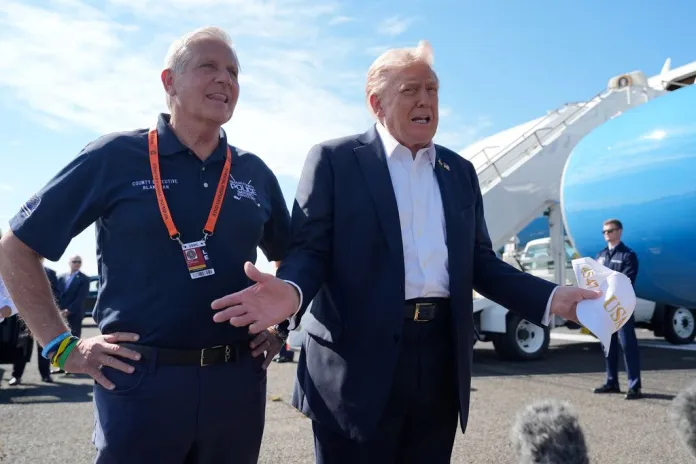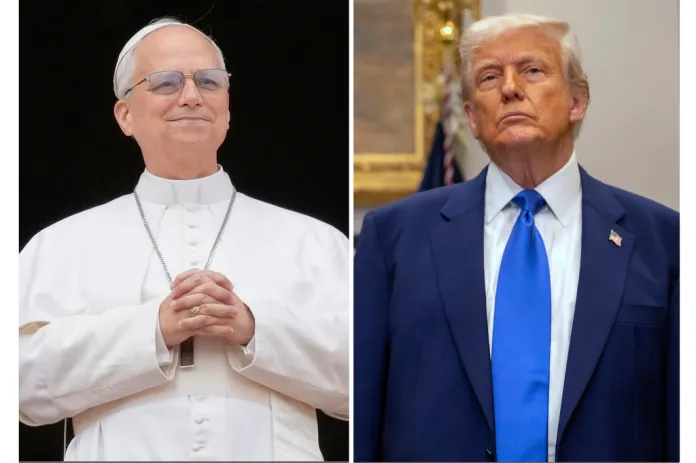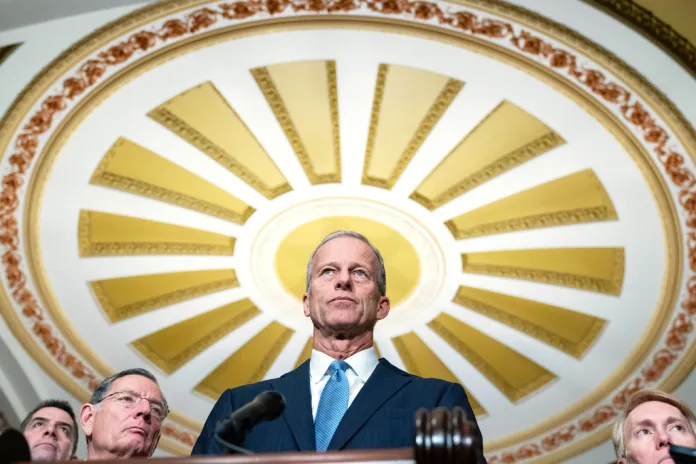Harris offers three ways she’d be better on the economy than Trump – Washington Examiner
Vice President Kamala Harris recently delivered a speech in Pittsburgh, focusing on her economic agenda based on three key pillars aimed at fostering an “opportunity economy.” Although she highlighted positive economic indicators, she acknowledged that families in the U.S. continue to grapple with high prices. Harris positioned her economic policies as a choice between two fundamentally different paths, contrasting her vision for a strong middle class with former President Donald Trump’s agenda, which she criticized as favoring the wealthy. While she aimed to discuss new economic proposals, the speech mostly reiterated her commitment to strengthening the middle class, investing in innovation, and creating jobs, without providing substantial new initiatives. Harris hinted at potential campaign promises, such as increasing registered apprenticeships and offering tax credits for union jobs but did not detail specific strategies for achieving these goals. Her remarks were described as more business-friendly than in the past, with an emphasis on collaboration with the private sector, while also asserting her readiness to hold corporations accountable when necessary.
Harris offers three reasons why she’s better than Trump for economy
PITTSBURGH — Vice President Kamala Harris delivered a speech Wednesday focusing on the three pillars of her “opportunity economy” agenda, but she largely did not detail new economic proposals as some expected.
Polling suggests Harris is gaining on former President Donald Trump regarding voter trust concerning the economy, though the former president retains his advantage heading into the 2024 general election. Poll participants generally gave the vice president positive remarks on her performance during the September debate but still said they wanted to hear both Harris and Trump explain the specifics of their economic plans.
Harris opened her Wednesday remarks before the Economic Club of Pittsburgh by recounting a number of recent positive economic indicators but conceded to attendees that elevated prices continue to be a problem for families in the United States.
“In many ways, this is what this election is all about. The American people face a choice between two fundamentally very different paths for our economy,” she stated. “I intend to chart a new way forward and grow America’s middle class.”
Although her address was pitched as an opportunity for her to further explain her economic policies, she quickly moved into a critique of Trump after his own economy-focused speech this week in Georgia.
“Donald Trump intends to take America backward to the failed policies of the past. He has no intention to grow our middle class. He’s only interested in making life better for himself and people like himself, the wealthiest of Americans. You can see it spelled out in his economic agenda,” she said. “For Donald Trump, our economy works best if it works for those who own the big skyscrapers. Not those who build them. Not those who wire them. Not those who mop the floors. I have a very different vision.”
The bulk of the vice president’s speech featured promises to build a “strong middle class” and engage in “bold, persistent experimentation,” as coined by former President Franklin D. Roosevelt. However, it failed to substantively outline any new policy proposals, as was expected.
“When the middle class is strong, America is strong, and we can build a stronger middle class, the American economy. We know this here: the American economy is the most powerful force for innovation and wealth creation in human history,” Harris said. “We just need to move past the failed policies that we have proven don’t work.”
However, she discussed the three “pillars” of her economic platform, arguing that her plans would lower costs for U.S. families, invest in U.S. innovation and entrepreneurship, and lead the world in the “industries of the future.”
The vice president did hint at a number of new campaign promises, such as doubling the number of registered apprenticeships and offering tax credits to expand union jobs in the steel and iron industries. However, she generally did not explain any specific vehicles for accomplishing those goals.
“At this pivotal moment, we have an extraordinary opportunity to chart a new way forward, one that positions the United States of America and all of us who are blessed to call this home for success and prosperity in the 21st century,” Harris concluded.
Harris’s remarks were more business-friendly than her previous public statements about the economy in North Carolina and in New Hampshire after her campaign advisers Brian Nelson and Tony West, who is also her brother-in-law, spent time last week in New York City meeting with Wall Street executives. That is despite Pittsburgh being the home of the labor union movement in the important battleground state of Pennsylvania.
Before her appearance, a senior campaign official previewed how Harris would tell the crowd that “while she has spent her whole career as a proud public servant, as a capitalist, she understands the limitations of government and has always sought to take good ideas from wherever they come and harness the power of innovation.”
“She will describe her economic philosophy as ‘pragmatic’ — stressing that she will pursue practical, realistic solutions, instead of being ‘bound by ideology,’” the campaign official said. “She will lay out her view that to grow the middle class, you have to work in partnership with the private sector and entrepreneurs, nodding to how she has spent her entire career doing that.”
But underscoring the more populist, government interventionist posture that she first adopted in North Carolina last month, the campaign official added that Harris would also “say she is unafraid to hold bad actors accountable if she needs to, as her time as [California] attorney general proves.”
In North Carolina, the vice president announced she would introduce $25,000 down-payment support for first-time homeowners and the first-ever federal ban on price gouging on food and groceries, among other measures if she is elected president in November. Then, earlier this month in New Hampshire, she announced she would also implement a $50,000 small business tax deduction with the aim of receiving 25 million new small business applications during her first term.
You can watch Harris’s remarks in full below.
" Conservative News Daily does not always share or support the views and opinions expressed here; they are just those of the writer."




